
Content provided by Dr. Salman Ashraf, Medical Director, Nebraska ASAP
The AMDA – The Society for Post-Acute and Long Term-Care Medicine convened a UTI consensus statement workgroup in 2017 to outline best practices for the management of UTI in post-acute and long-term care (PALTC) settings. The workgroup consisted of various national and international subject matter experts and was chaired by UNMC faculty Dr. Muhammad Salman Ashraf, who is an Associate Professor in the Division of Infectious Diseases. In addition to making recommendations for diagnosis, treatment and prevention of urinary tract infections (UTIs), the workgroup also outlined how PALTC settings can initiate an antimicrobial stewardship project focused on improving UTI management and incorporate it into their Quality Assurance and Performance Improvement (QAPI) program.
Diagnosis, treatment and prevention of UTIs in older adults remains very challenging, especially in PALTC settings. The magnitude of the problem can be assessed by the fact that over 50% of antibiotics prescribed for UTIs in PALTC settings have been found to be inappropriate in some studies. Antibiotic use is the primary driver for selection of multi-drug resistant organisms. It also increases the risk for C. difficile infection. Since, PALTC residents are at increased risk for colonization with multidrug-resistant organisms and C. difficile, improving UTI management in these settings should be a priority. Several guidance documents have been published in the past that address various aspects of UTI management in PALTC settings but there was a need for a comprehensive guidance document which covers diagnosis, treatment, and prevention of UTIs in PALTC residents.
While some of the recommendations of UTI consensus statement concur with previous guidelines about UTI in general, there are several new recommendations specific to PALTC settings. For example, the consensus statement recommends that PALTC settings should incorporate one of the published clinical algorithms for diagnosis and management of UTI into their antibiotic stewardship policy and use that algorithm for guiding the diagnosis and decision to initiate antibiotics for residents with a suspected UTI. They included four examples of such algorithms including Loeb Minimum Criteria, AHRQ decision tool (Suspected UTI SBAR Form), IOU Consensus Guideline and International Delphi Consensus Decision Tool. PALTC settings are advised to choose one of these criteria that seems most closely aligned with their current practices.
When discussing collection of urine specimen from residents with indwelling urinary catheter, the consensus statement agree with previously published recommendations that a catheter should be replaced prior to collecting a urine specimen in residents with urinary catheter present for over two weeks. It also adds that when a urinary catheter have been in place for shorter than two weeks duration, the decision to obtain a urine sample from the sampling port of the existing catheter or to remove the catheter before obtaining a urine sample should be made on case-by-case basis. The underlying reason for this recommendation is that shorter interval between catheterization and development of bacteriuria is possible but it is acknowledged that further studies are needed in this area.
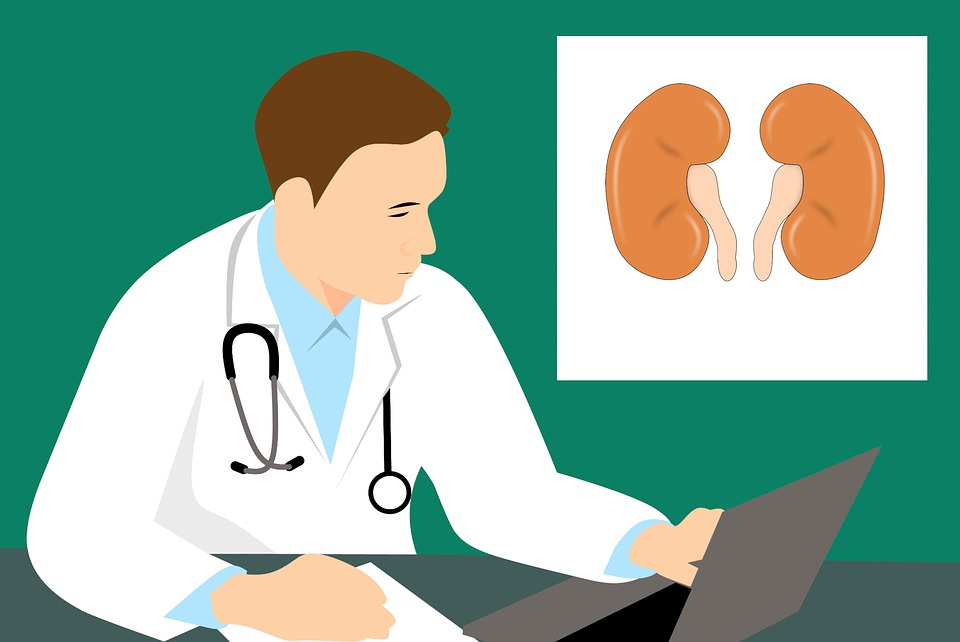 One of the most important recommendations related to the treatment of suspected UTI is about using an “Active Monitoring” protocol for those residents who do not meet clinical criteria for UTI and do not have any warning signs (such as fever, rigors, acute delirium, or unstable vital signs), but for whom clinical concern for UTI still exist. Such a protocol include frequent monitoring of vital signs, addressing hydration status and repeated clinical assessments by nursing home staff. Use of such protocols has the potential to decrease inappropriate prescribing for suspected UTI. An example of an active monitoring order set is also included in the document.
One of the most important recommendations related to the treatment of suspected UTI is about using an “Active Monitoring” protocol for those residents who do not meet clinical criteria for UTI and do not have any warning signs (such as fever, rigors, acute delirium, or unstable vital signs), but for whom clinical concern for UTI still exist. Such a protocol include frequent monitoring of vital signs, addressing hydration status and repeated clinical assessments by nursing home staff. Use of such protocols has the potential to decrease inappropriate prescribing for suspected UTI. An example of an active monitoring order set is also included in the document.
The consensus statement also emphasized that clinicians should not prolong treatment duration for nursing home residents with UTIs just because of their advanced age. PALTC residents with cystitis who are not severely ill and are not at high risk for developing complications can be treated with fewer than 7 days of antibiotics. The consensus statement include a table that describe factors that may predispose residents with a UTI to treatment failure or complications. For those residents who may be at higher risk for treatment failure, the length of antibiotic therapy is recommended to be based on the severity of the illness and response to the treatment. However, it has been mentioned that for most of these residents, 7 days of antibiotic treatment should be adequate if they respond promptly to antibiotics (within 72 hours). Duration longer than that (10-14 days) is considered reasonable for residents with severe illness such as those with bacteremia or a delayed response to treatment.
The UTI consensus statement encouraged the use of local (vaginal) estrogen therapy in postmenopausal women for prevention of recurrent UTIs and recommended against long-term antibiotic prophylaxis because of the potential harms associated with long-term antibiotic use and the prevalence of multidrug-resistant organisms among PALTC residents. It was also highlighted that implementing comprehensive infection prevention and control efforts is a safe and effective strategy to reduce CAUTI in PALTC settings.
The document includes a table which outlines the 7 CDC-recommended core elements for antibiotic stewardship in Nursing Homes and provides practical examples of how to apply these core elements to develop a program that focuses on improving the diagnosis, treatment and prevention of UTIs in PALTC settings.
 In short, the AMDA UTI Consensus Statement is a comprehensive guidance document for management of UTI in older adults residing in post-acute and long-term care setting. The document provides guidance to various healthcare professionals including clinicians, administrators, infection preventionists and quality program leaders. The complete document (including the supplementary summary of the recommendations) can be downloaded from the following link https://www.jamda.com/article/S1525-8610(19)30806-0/abstract
In short, the AMDA UTI Consensus Statement is a comprehensive guidance document for management of UTI in older adults residing in post-acute and long-term care setting. The document provides guidance to various healthcare professionals including clinicians, administrators, infection preventionists and quality program leaders. The complete document (including the supplementary summary of the recommendations) can be downloaded from the following link https://www.jamda.com/article/S1525-8610(19)30806-0/abstract
References:
Ashraf MS, Gaur S, Bushen OY et al. Diagnosis, Treatment, and Prevention of Urinary Tract Infections in Post-Acute and Long-Term Care Settings: A Consensus Statement From AMDA’s Infection Advisory Subcommittee. J Am Med Dir Assoc. 2020 Jan;21(1):12-24.e2.
Loeb M, Bentley DW, Bradley S, et al. Development of minimum criteria for the initiation of antibiotics in residents of long-term-care facilities: results of a consensus conference. Infect Control Hosp Epidemiol. 2001;22(2):120-124.
Nace DA, Perera SK, Hanlon JT, et al. The Improving Outcomes of UTI Management in Long-Term Care Project (IOU) Consensus Guidelines for the Diagnosis of Uncomplicated Cystitis in Nursing Home Residents. Journal of the American Medical Directors Association. 2018;19(9):765-769.e3.
van Buul LW, Vreeken HL, Bradley SF, et al. The Development of a Decision Tool for the Empiric Treatment of Suspected Urinary Tract Infection in Frail Older Adults: A Delphi Consensus Procedure. Journal of the American Medical Directors Association. 2018;19(9):757-764.
Toolkit 1. Start an Antimicrobial Stewardship Program | Agency for Healthcare Research and Quality. (Available at: https://www.ahrq.gov/nhguide/toolkits/implement-monitor-sustain-program/toolkit1-start-program.html Date accessed 1/13/20)
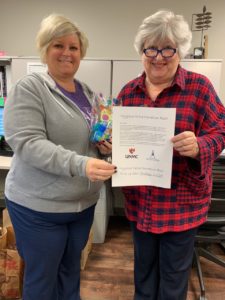
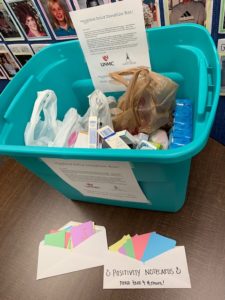 The Nebraska Medicine Specialty Care Center houses our HIV clinic as well as a hygiene pantry that stocks supplies to help patients who don’t have access to these products, supplementing the medical care patients receive and helping break down some of the barriers to good health. In October, Carly McCulloch, an education graduate student at the College of Saint Mary, organized a hygiene drive to benefit our pantry.
The Nebraska Medicine Specialty Care Center houses our HIV clinic as well as a hygiene pantry that stocks supplies to help patients who don’t have access to these products, supplementing the medical care patients receive and helping break down some of the barriers to good health. In October, Carly McCulloch, an education graduate student at the College of Saint Mary, organized a hygiene drive to benefit our pantry.

 One of the most important recommendations related to the treatment of suspected UTI is about using an “Active Monitoring” protocol for those residents who do not meet clinical criteria for UTI and do not have any warning signs (such as fever, rigors, acute delirium, or unstable vital signs), but for whom clinical concern for UTI still exist. Such a protocol include frequent monitoring of vital signs, addressing hydration status and repeated clinical assessments by nursing home staff. Use of such protocols has the potential to decrease inappropriate prescribing for suspected UTI. An example of an active monitoring order set is also included in the document.
One of the most important recommendations related to the treatment of suspected UTI is about using an “Active Monitoring” protocol for those residents who do not meet clinical criteria for UTI and do not have any warning signs (such as fever, rigors, acute delirium, or unstable vital signs), but for whom clinical concern for UTI still exist. Such a protocol include frequent monitoring of vital signs, addressing hydration status and repeated clinical assessments by nursing home staff. Use of such protocols has the potential to decrease inappropriate prescribing for suspected UTI. An example of an active monitoring order set is also included in the document. In short, the AMDA UTI Consensus Statement is a comprehensive guidance document for management of UTI in older adults residing in post-acute and long-term care setting. The document provides guidance to various healthcare professionals including clinicians, administrators, infection preventionists and quality program leaders. The complete document (including the supplementary summary of the recommendations) can be downloaded from the following link
In short, the AMDA UTI Consensus Statement is a comprehensive guidance document for management of UTI in older adults residing in post-acute and long-term care setting. The document provides guidance to various healthcare professionals including clinicians, administrators, infection preventionists and quality program leaders. The complete document (including the supplementary summary of the recommendations) can be downloaded from the following link  Dr. Angela Hewlett, Medical Director of the Nebraska Biocontainment Unit, recently co-authored an article that appeared in the AMA Journal of Ethics entitled; “
Dr. Angela Hewlett, Medical Director of the Nebraska Biocontainment Unit, recently co-authored an article that appeared in the AMA Journal of Ethics entitled; “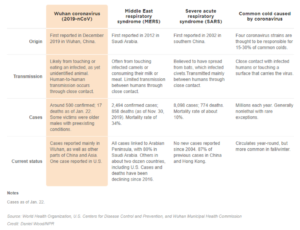
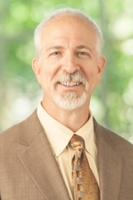 Content written by Dr. Mark Rupp based on recent publication release:
Content written by Dr. Mark Rupp based on recent publication release:
Recent Comments